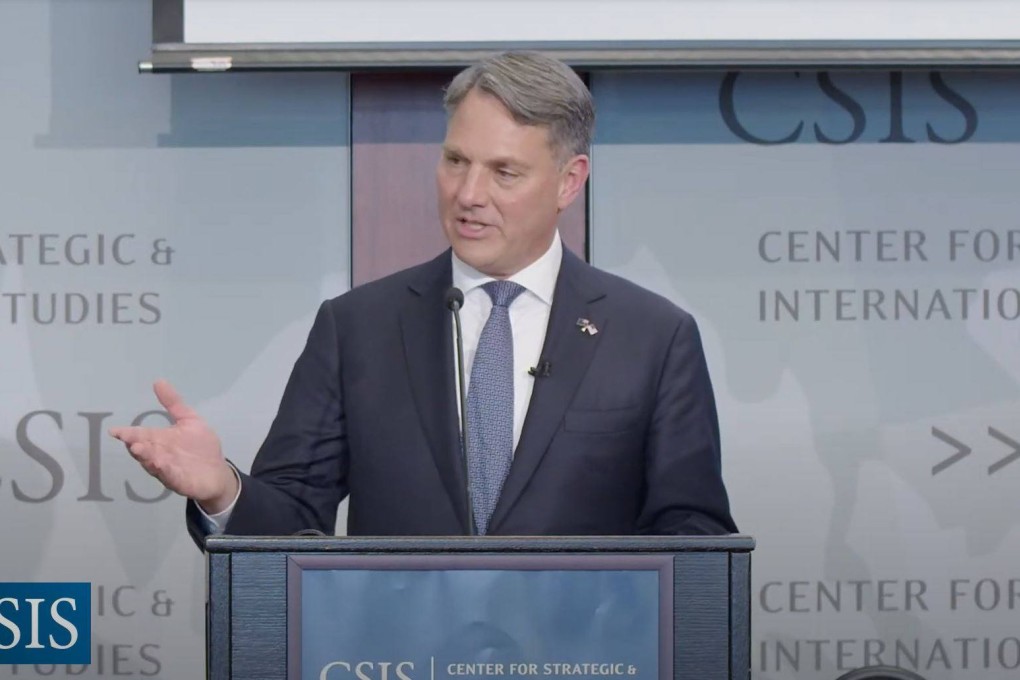Advertisement
US and Australia must boost Indo-Pacific security cooperation as China looms: deputy prime minister
- ‘We can’t afford to stand still’ amid Beijing’s military build-up and ‘force or coercion’ to advance territorial claims, No 2 Canberra official warns
- Cautionary remarks come as Richard Marles visits Washington to deepen bilateral military ties and ahead of expected talks with US defence secretary
Reading Time:3 minutes
Why you can trust SCMP
25

The United States and Australia must bolster their security cooperation to avoid a “catastrophic failure of deterrence” in the Indo-Pacific region, Australia’s deputy prime minister said, warning of China’s rapid military build-up, its courting of Pacific Island nations, and “use of force or coercion to advance territorial claims”.
“Notwithstanding our strong foundations, we can’t afford to stand still,” Richard Marles, who also serves as Canberra’s defence minister, said during an appearance at the Washington-based Centre for Strategic and International Studies on Monday.
“In the years ahead the US-Australia alliance will not only have to operate in a much more challenging strategic environment in the Indo-Pacific,” Marles said. “It will need to contribute to a more effective balance of military power aimed at avoiding a catastrophic failure of deterrence.”
Advertisement
The No 2 Australian official’s comments marked the start of his first trip to the US in his current role, and came as Canberra considers whether to choose British or American designs for new nuclear-powered submarines – an outcome of a trilateral security pact forged by the previous Australian administration.
Marles offered a full-throated endorsement of that deal, which is known as Aukus, saying “the heart of deterrence is undersea capability”.
Advertisement
Advertisement
Select Voice
Select Speed
1.00x